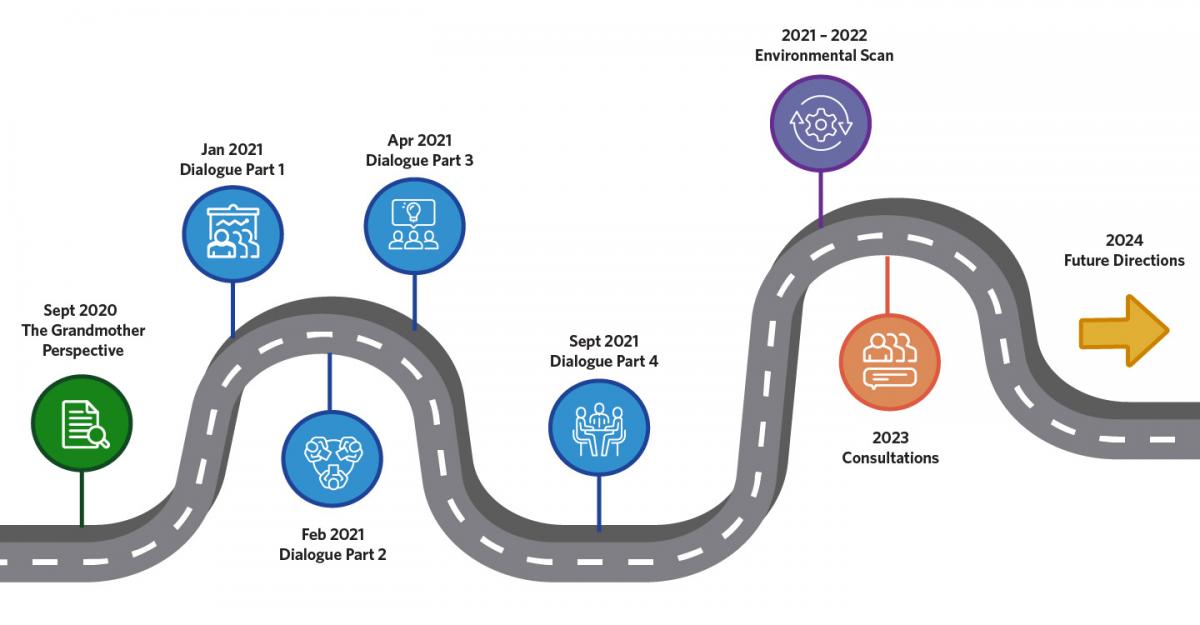Using data to advance human rights: A conversation about the collection and use of disaggregated data
Powerful statements are made possible by disaggregated data. By making systemic inequalities in our society visible, data can lead to positive change. The same data, used or collected poorly, can reinforce stigmatization of communities, leading to individual and community harm. – BC’s Office of the Human Rights Commissioner
In response to the BC’s Office of the Human Rights Commissioner report Disaggregated demographic data collection in British Columbia: The grandmother perspective, UBC Health created the Disaggregated Data Dialogue Series to bring together researchers, students, and community to discuss the responsibilities of researchers and UBC as an institution around the collection and use of disaggregated data. The grandmother perspective report calls on researchers to not only describe but also act to reduce inequities that disaggregated data reveal. It also describes the importance of involving communities in decisions about data use and makes other recommendations to guide data sharing and use.
The dialogue series reflects UBC Health’s commitment to being part of ongoing conversations about the collection and use of disaggregated data. By convening researchers and community members, we are advancing our collective understanding about how disaggregated data can be used to address inequalities and advance human rights.
UBC Health is committed to supporting ongoing dialogue and collaboration, building awareness about new developments in disaggregated data and data justice, connecting researchers to guidance around best practices, and engaging communities to inform responsible health research approaches.
Follow the roadmap for a summary of UBC Health’s activities to date and future directions.

| September 2020 | The Grandmother Perspective BC’s Office of the Human Rights Commissioner released the report, Disaggregated demographic data collection in British Columbia: The grandmother perspective. |
| January 2021 | Dialogue Session: Part 1 The Office of the Vice-President, Health, in partnership with the Office of the Provost and Vice-President, Academic, UBC Okanagan, organized a public dialogue between the university and BC’s Office of the Human Rights Commissioner about the collection and use of disaggregated data to address inequalities and advance human rights. The event began an ongoing conversation regarding the report’s impact on UBC’s responsibilities as an institution. |
| February 2021 | Dialogue Session: Part 2 UBC Health held a targeted discussion about UBC researchers’ responsibilities for collecting and using disaggregated data. Our objectives were to explore how to assist in understanding how The grandmother perspective report influences responsibility, foster dialogue with the research community, and establish commitments for future initiatives. |
| April 2021 | Dialogue Session: Part 3 UBC Health met with a small group of engaged participants to discuss shaping future events and using disaggregated data. The discussion made it clear that people want to do the right thing but need guidance. We planned to seek out relevant resources to support researchers and the community. |
|
September 2021 |
Dialogue Session: Part 4 BC Health convened a dialogue session on research ethics and using disaggregated data. Laurel Evans, Director of Research Ethics, UBC presented the Tri-Council Policy Statement and proposed changes. Participants then discussed the ethics of collecting and using disaggregated data. |
| 2021-2022 | Environmental Scan of Guidance Resources UBC Health conducted an environmental scan of literature and publicly available documents on applying respectful and equity-addressing principles in the collection and use of disaggregated data. We also invited researchers to use an interactive online tool to identify and comment on resources that supported them in applying respectful and equity-addressing principles. Through these processes, UBC Health identified resources to address gaps in guidance, including those for equity-denied groups. However, we also realized there were further needs and a lack of actionable tools for responsible data justice practices. |
| 2023 | Consultations and Exploration Recognizing the rapid developments in this space, the need for advocacy and strong support for justice-informed approaches, ongoing resource development, and evolving needs, UBC Health conducted an options analysis for future activities. We also consulted partners engaged in best data practices and data justice to establish the next steps. |
| 2024 | Future Directions To build on the knowledge gathered and respect the extensive work already being done, there is a need for ongoing dialogue, collaboration among experts with a vested interest in this space, and a platform to support the visibility and awareness of resources to support researchers to collect and use disaggregated data respectfully and responsibly. UBC Health will continue to evaluate how to best support these needs. |